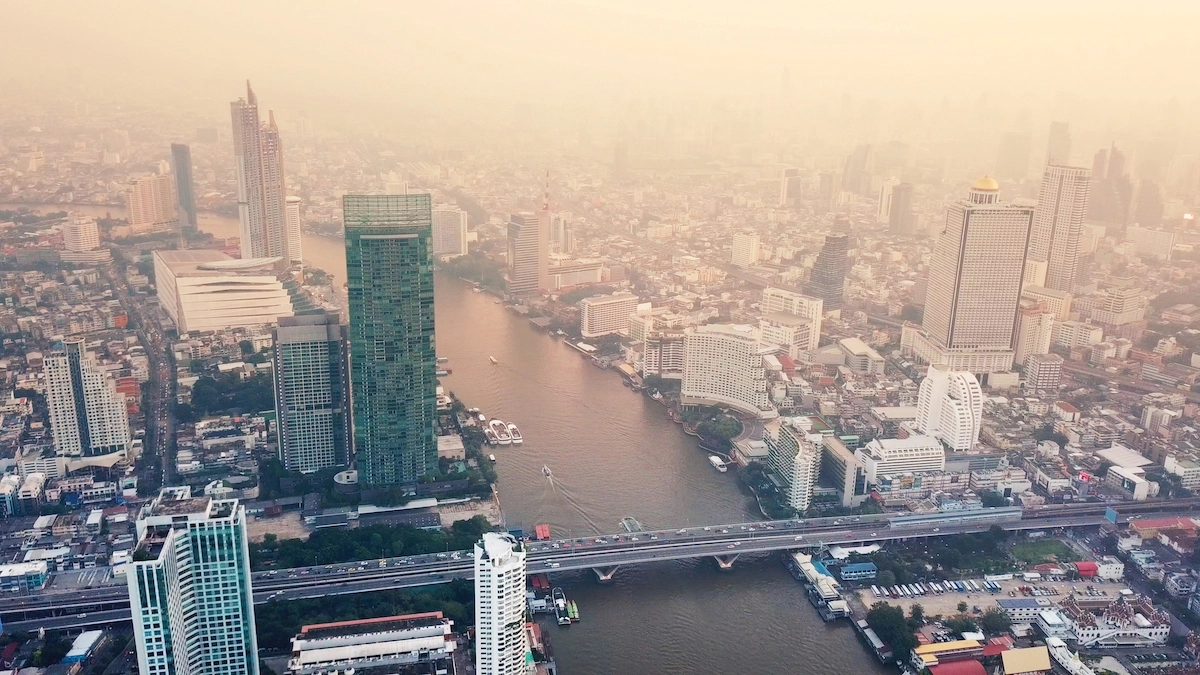Unhealthy Air Quality Returns to Bangkok
Seasonal dry conditions without much rain in Bangkok have resulted in awful air pollution once again in Bangkok and there have been noticeable higher accumulations of particulate matter over the last month, with high pollution levels expected to continue in the new term. Especially since particulate matter (specifically PM10 and PM2.5) is composed of extremely small particles that are more likely to remain airborne without rain. The accumulation of these fine particles thus increases the likelihood of exposure to airborne irritants and allergens.
Combining the constant traffic in Bangkok with seasonal field burning by farmers for the next crop (Smoky Season) and an unhealthy AQI or Air Quality Index becomes an issue for not only sensitive groups, but for everyone.
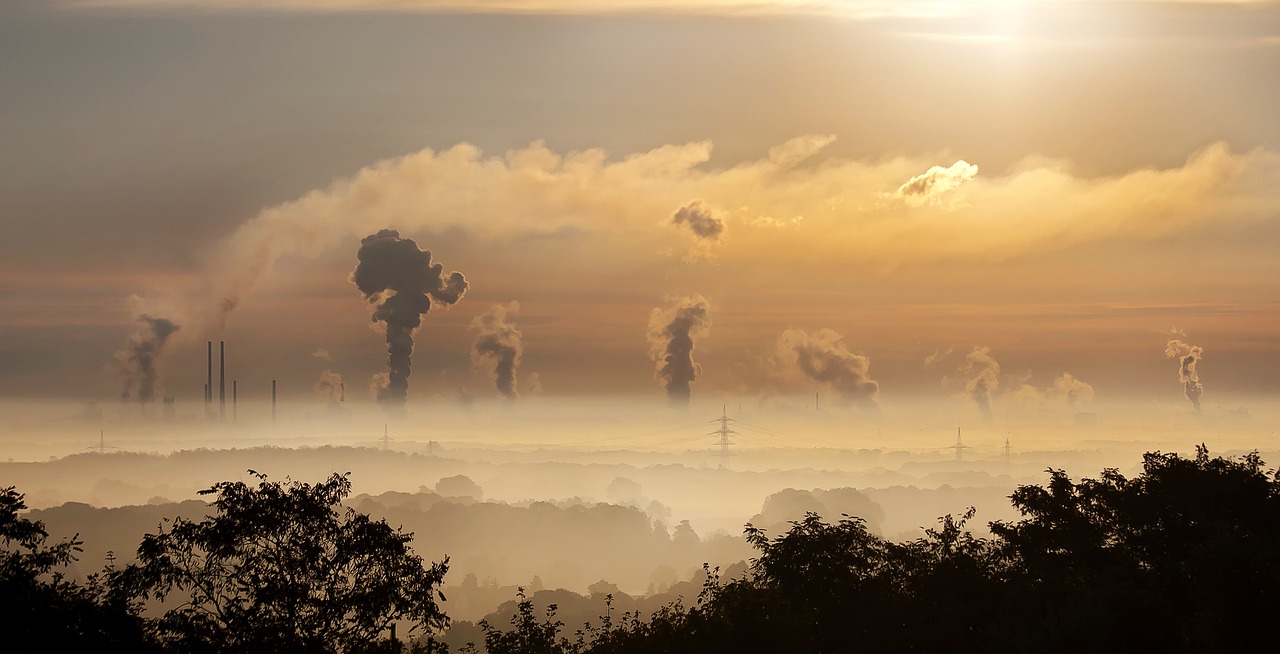
What Exactly is Air Pollution?
Air pollution is the when the air we breath is corrupted with the existence of damaging particles and gases. Airborne contaminants influence the quality of the air we breathe indoors as well as the air we breathe outside. Air pollution is the most serious environmental threat to peoples health all over the world. It has been the source of an approximated 7 million premature deaths even year. All major pollutants have an impact on the climate and most share common sources such as greenhouse gases therefore air pollution and climate change are inextricably linked. Through the improvement of our air quality we will receive the benefits not only for the environment but also towards our overall health and development.
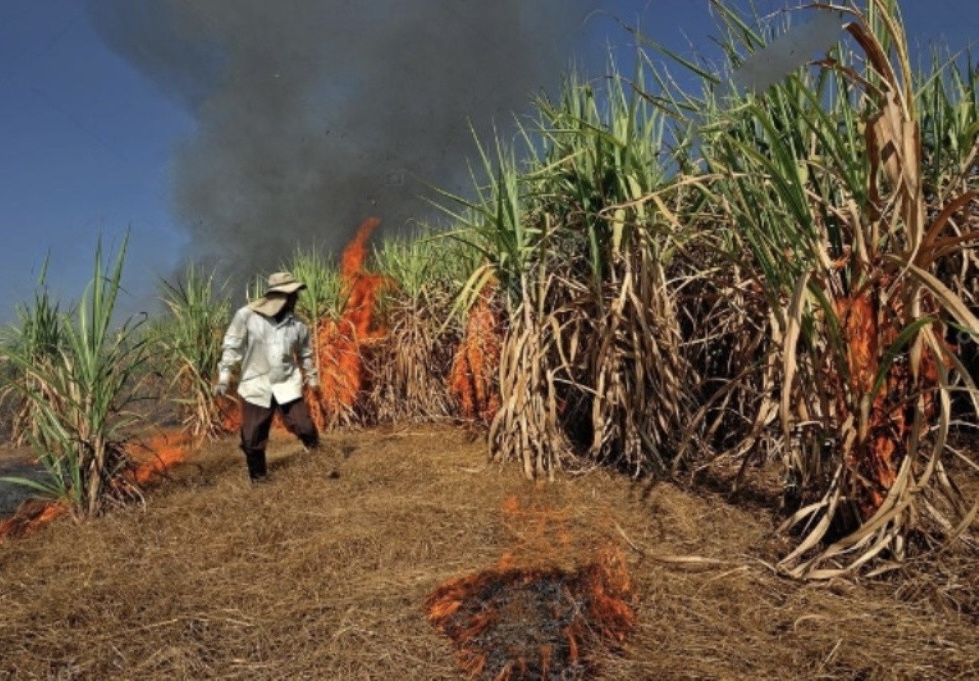
Damaging Effects of Air Pollution
Each and everyday we are inhaling small particles that cause harm to our lungs, brains, hearts and instigates a various of other health issues. PM2.5 is the most dangerous particle. It can range from soot to soil dust to sulphites and is only 2.5 microns which means it can bury its way into deep areas of your lungs and occasionally even your blood. PM2.5 is such a serve cause for concern as it cause 1 in every 9 fatalities globally and has been proven of shortening the average worldwide life expectancy. Stroke, heart disease, lung disease, lower respiratory disorders (such as pneumonia), and cancer are the most lethal illnesses that have been connected to PM2.5 air pollution.
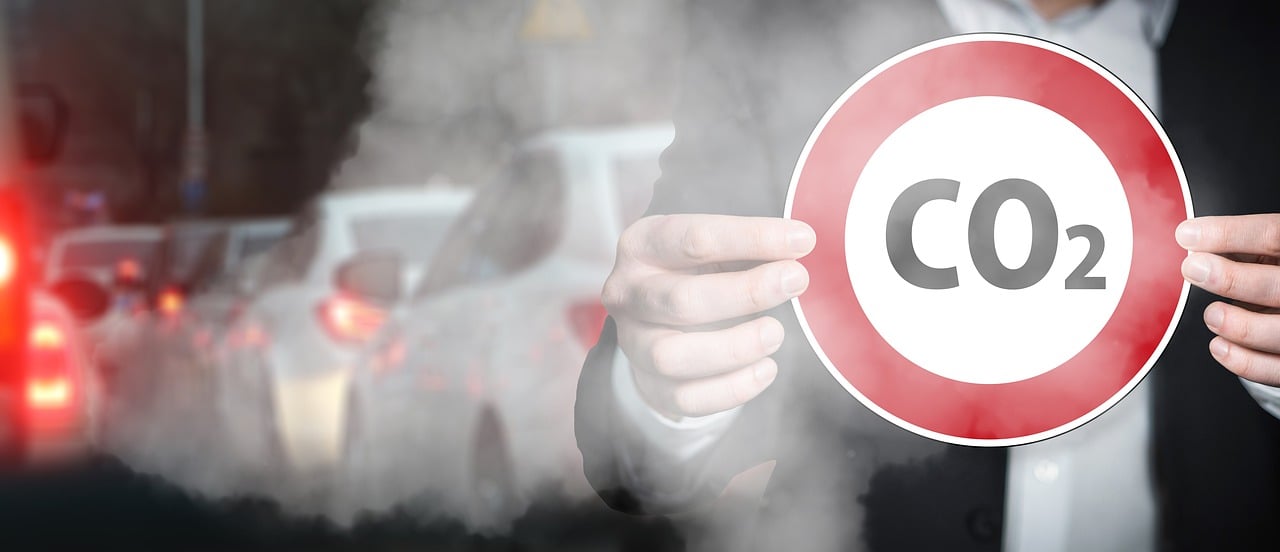
Excessive amounts of fine particles have also been shown to contribute to other ailments, such as diabetes, mental health and can impair the cognitive development in children. For years, some studies have linked air pollution to chronic illnesses including asthma, cancer. Even more frightening, recent studies indicate that unhealthy air quality can contribute to changes in the brain linked to dementia and even strokes. Do not ignore the body’s own warning signs. Some of these may include:
Maintaining an active lifestyle with regular exercise can get complicated when air pollution smothers the Bangkok landscape. And people with pre-existing conditions are particularly vulnerable to the effects of air pollution. Individuals with sinusitis, emphysema, allergies, COPD (Chronic Obstructive Pulmonary Disease), and other respiratory system issues often will be the first to notice the changes, but anyone can start to feel the effects of air pollution.
- Excessive or increased fatigue
- Coughing or sore throat which may indicate more severe lung damage
- Decreased ability to fight off infections
- Exacerbation of respiratory diseases like emphysema, bronchitis, sinusitis and asthma
Solutions to Air Pollution
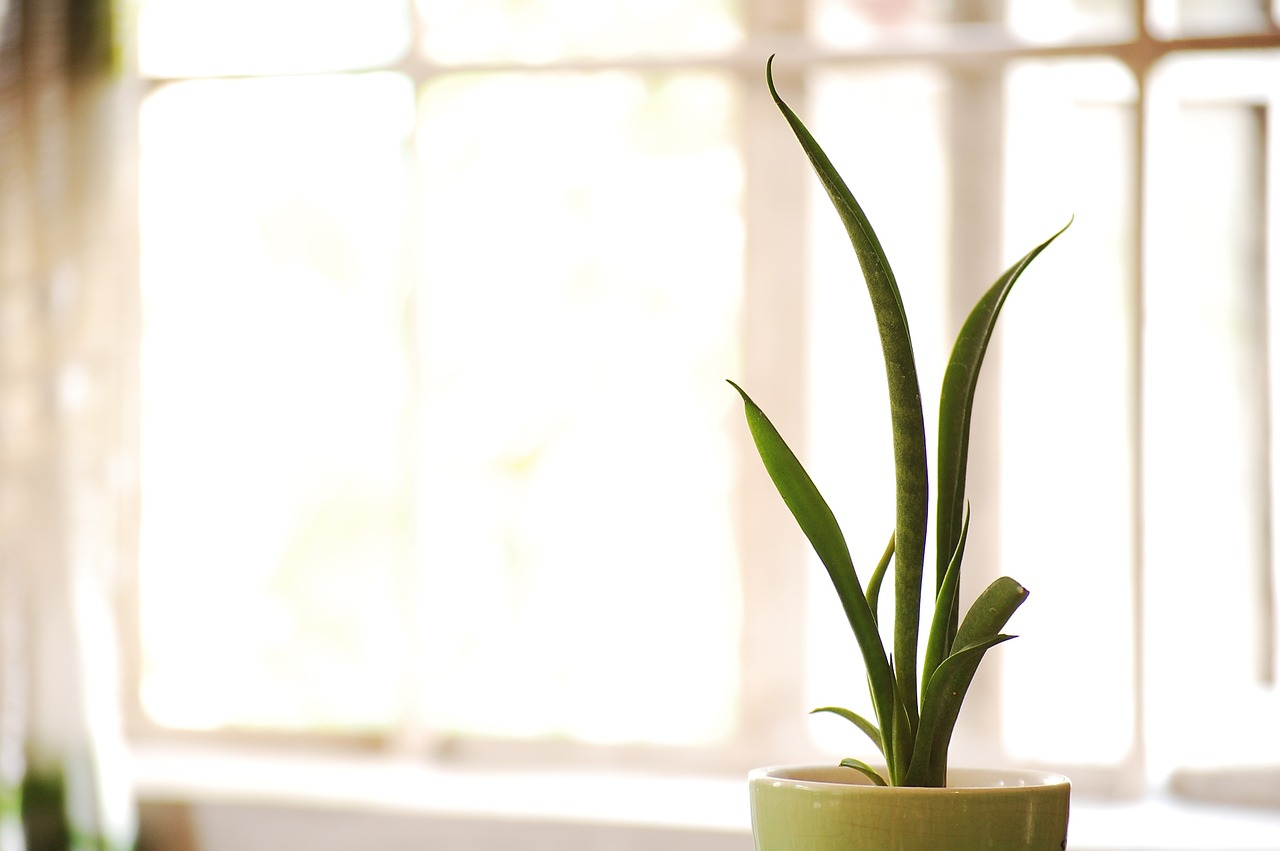
Having a specific allergy is one thing – avoid the thing that causes the allergy. But what can be done when the air around us is the cause of wheezing or when high temperatures combined with air pollution contribute to temperature fluctuation induced asthma? While there are medications like Ventolin (albuterol) to help those with COPD and asthma symptoms, other steps can be taken to reduce harmful exposure to poor air quality.
Below are tips for living with air pollution:
- While it may not always be feasible, try to stay indoors and avoid prolonged exposure outside during days when air pollution is at its peak
- Avoid peak times and places for exhaust
- Use in-home air filters, like a HEPA(High Efficiency Particulate Air) filter
- Wear a respirator mask which filters out 95-99% of the particulate matter
- Use air detoxifying plants which can promote healthy air quality around your home
Diagnosis and Treatment
Shortness of breath, excessive fatigue, persistent coughing and wheezing are especially disconcerting. If you are experiencing a specific pulmonary or lung issues related to air pollution contact the Pulmonary Center by phone at +66 2011 2222, request an appointment online, or send us your enquiry. Or if you are experiencing a broader issue, start the process for a comprehensive evaluation at our Health Screening Center with customized care.

